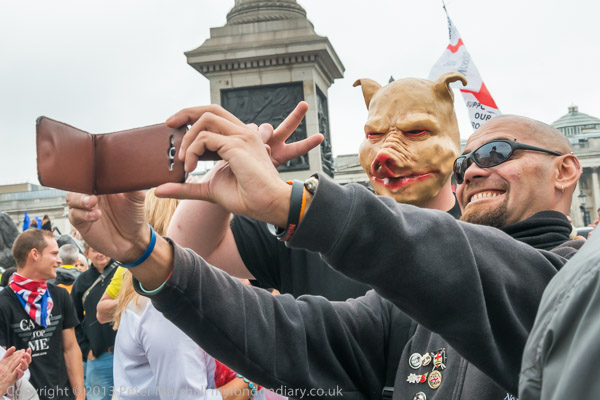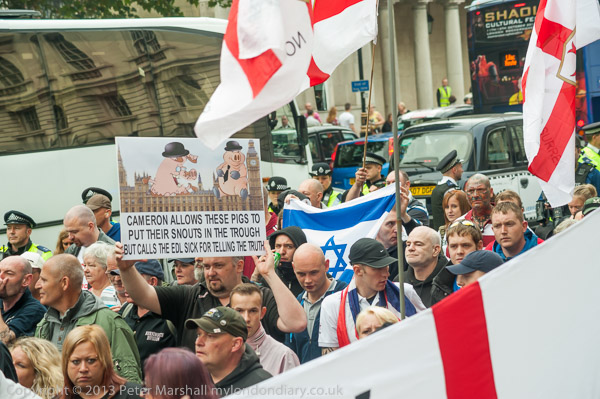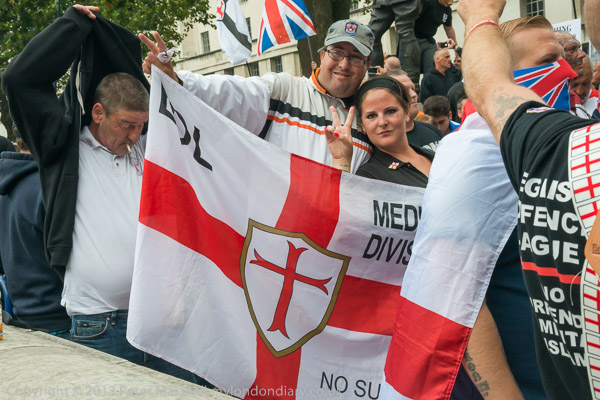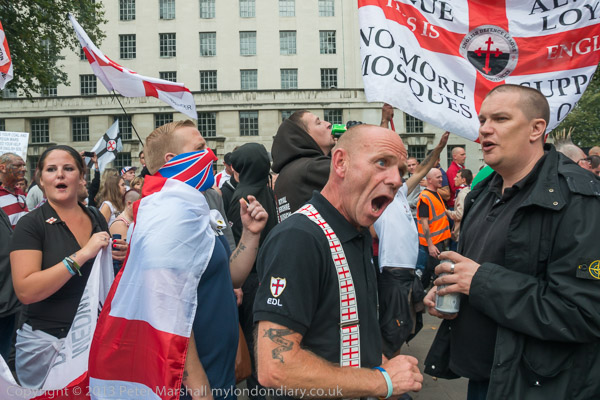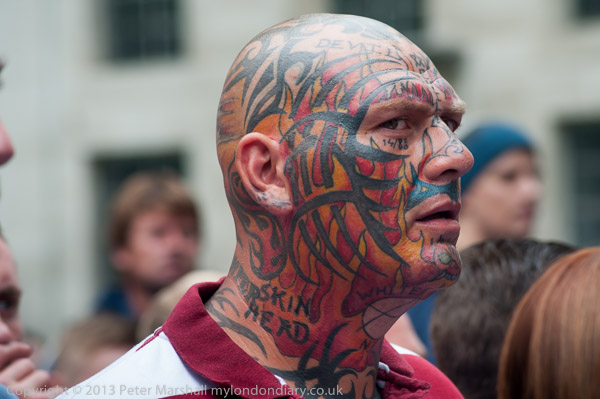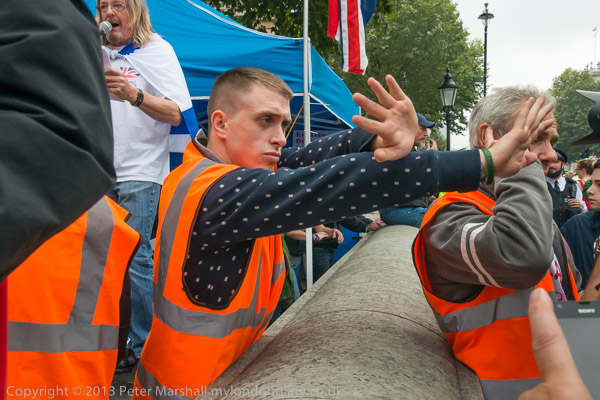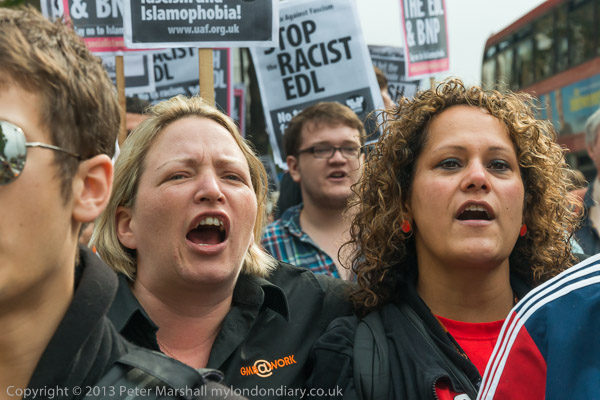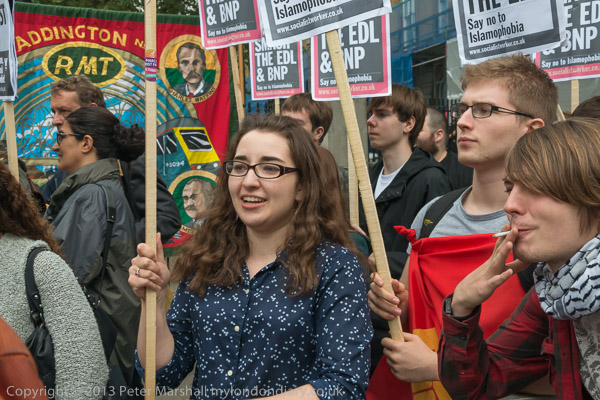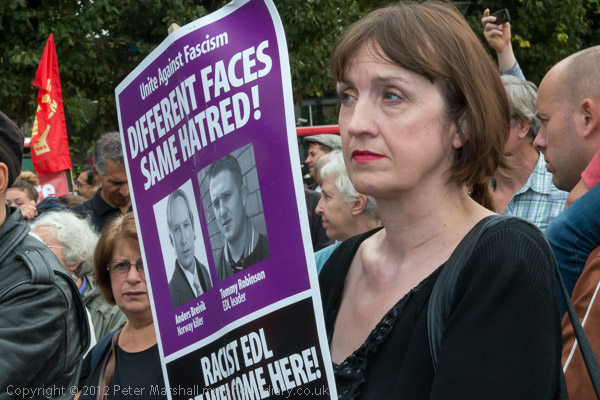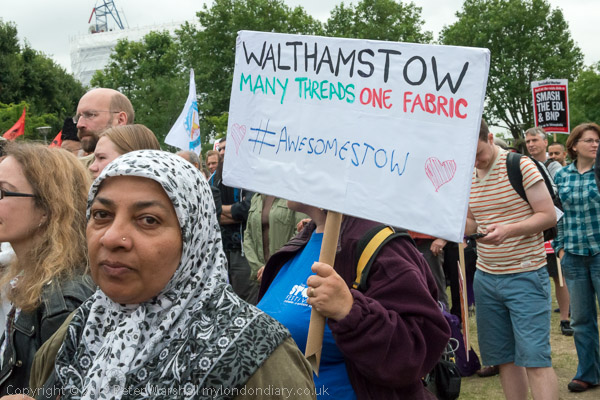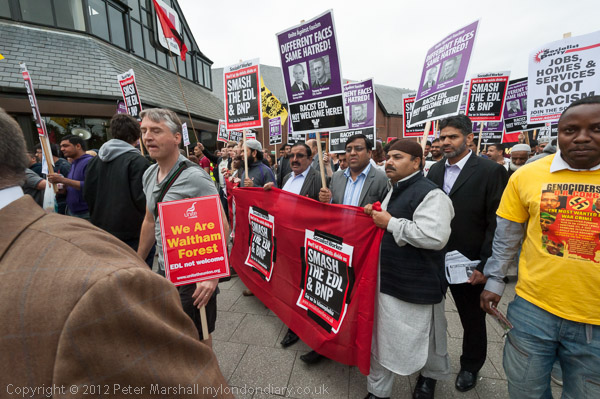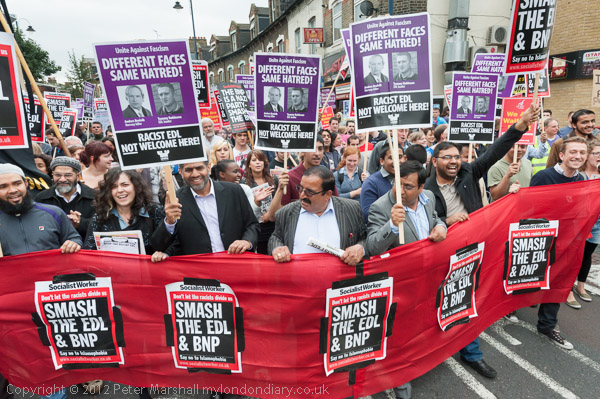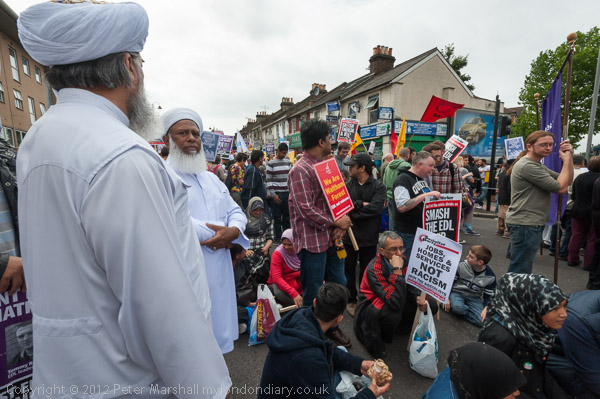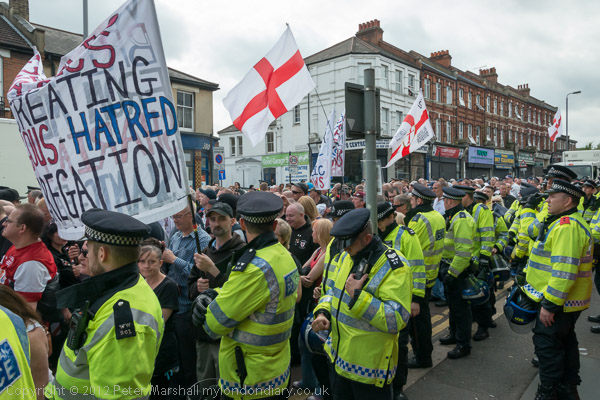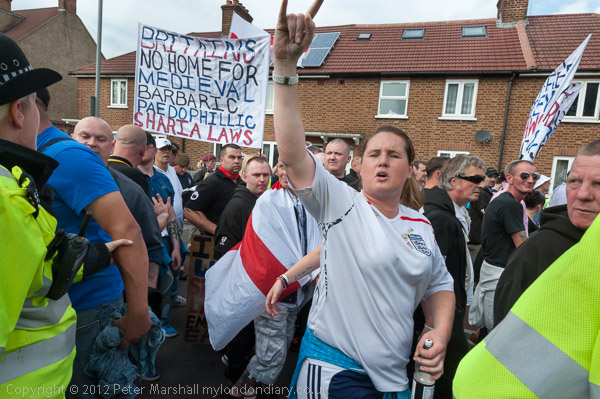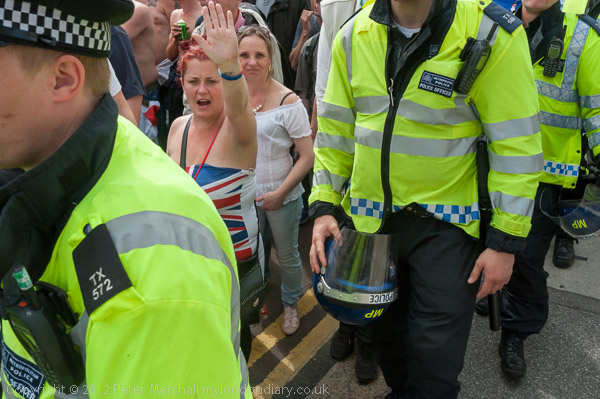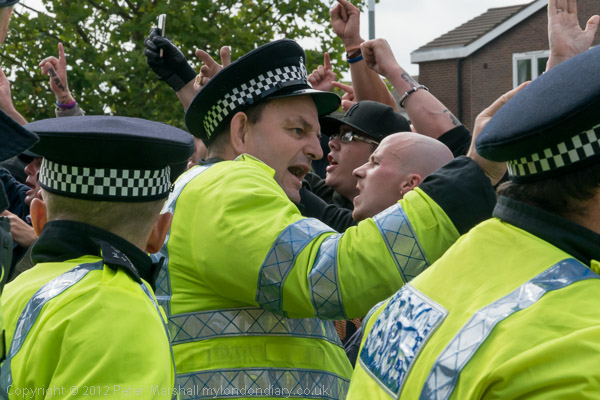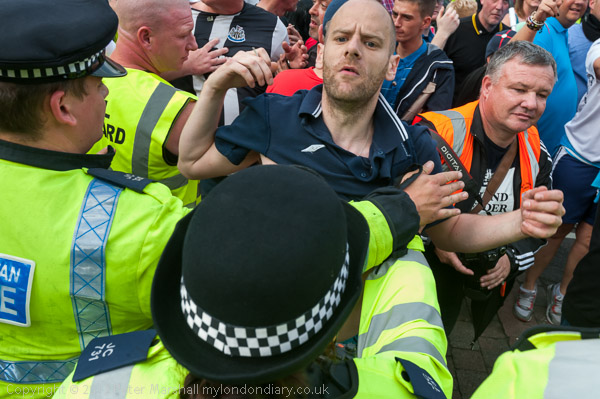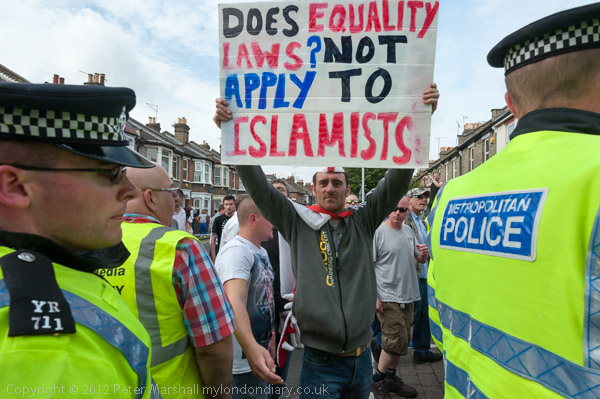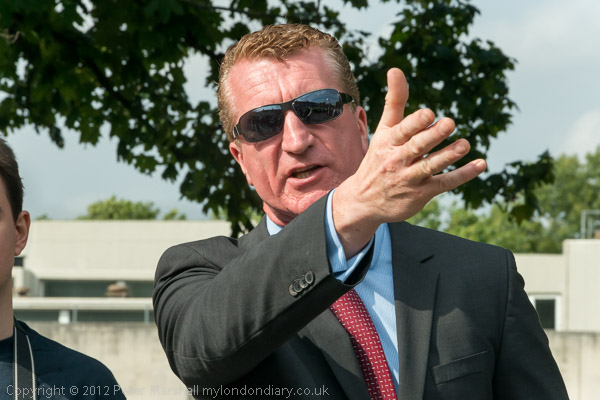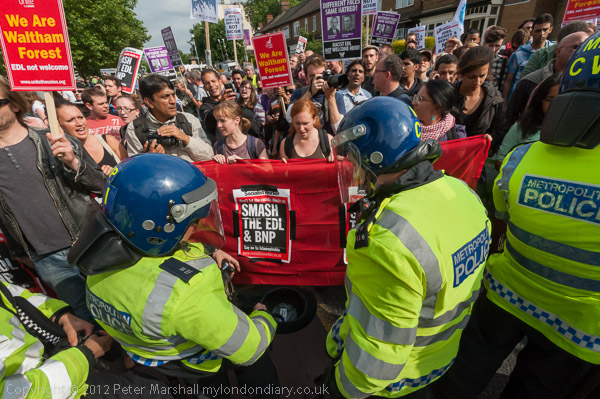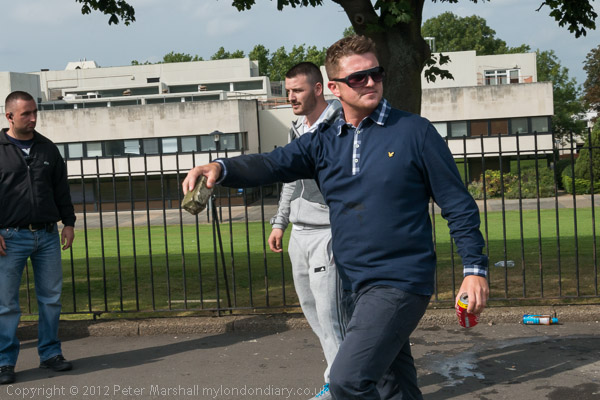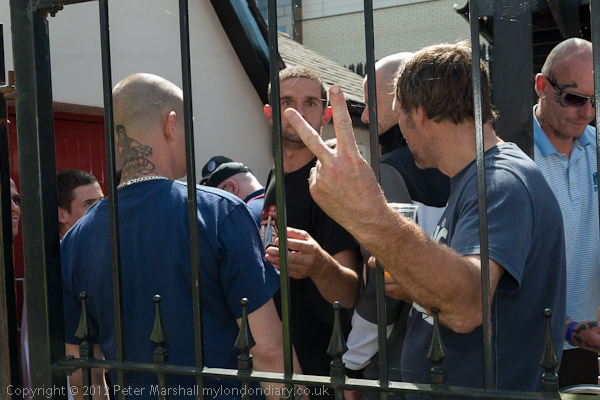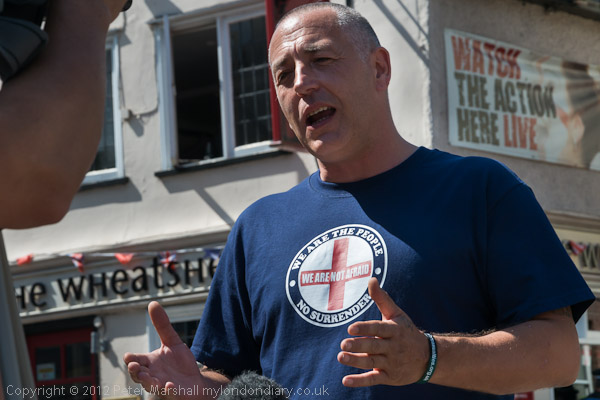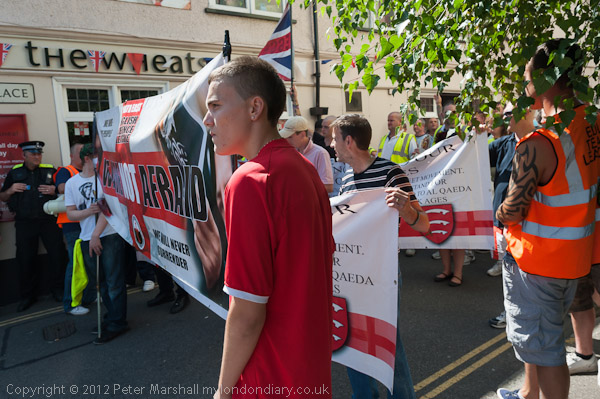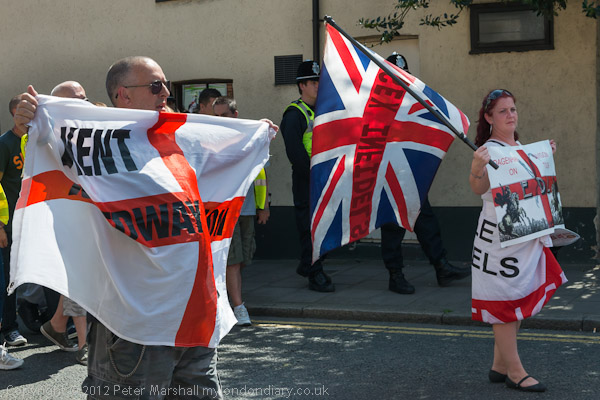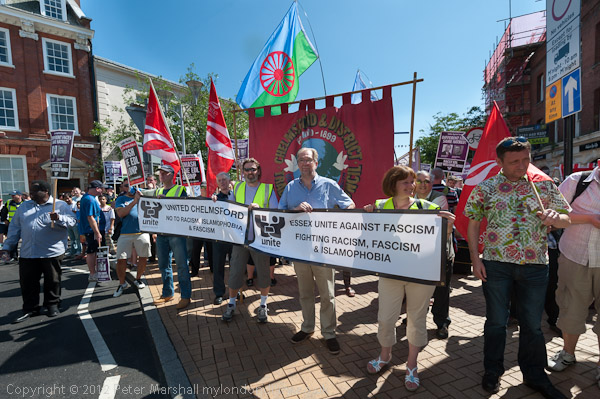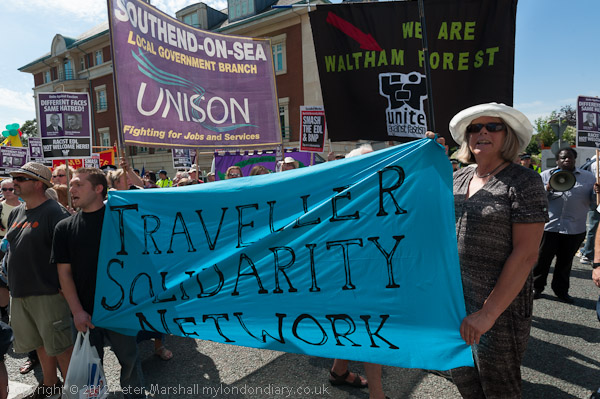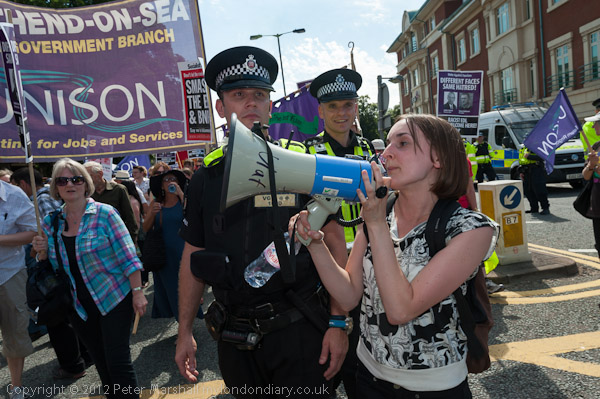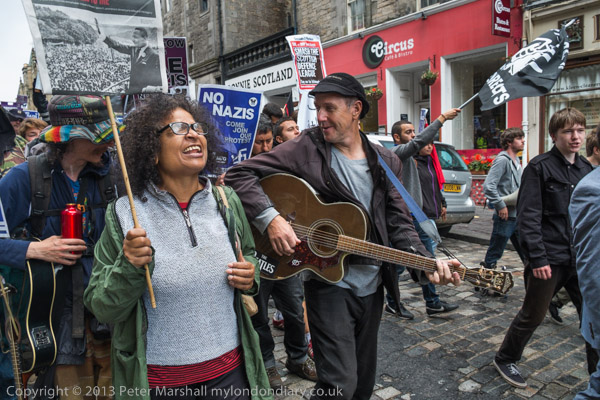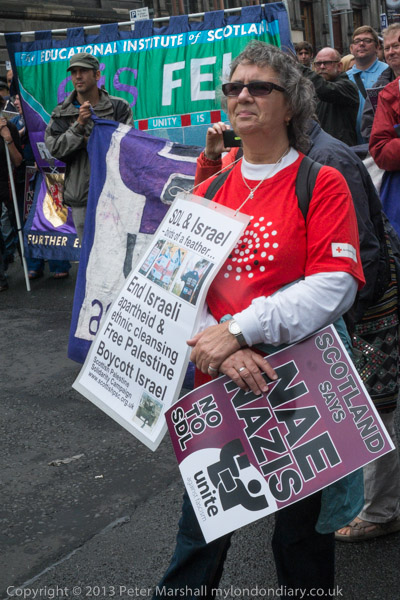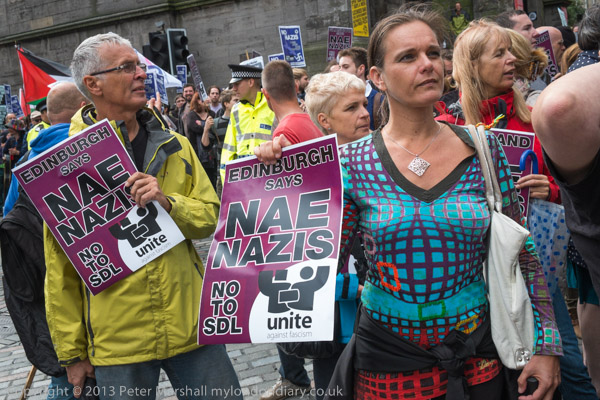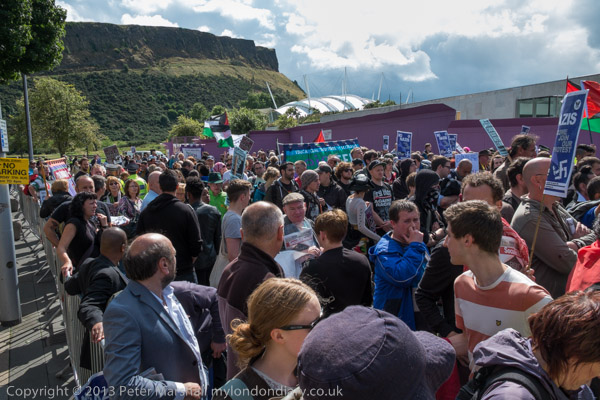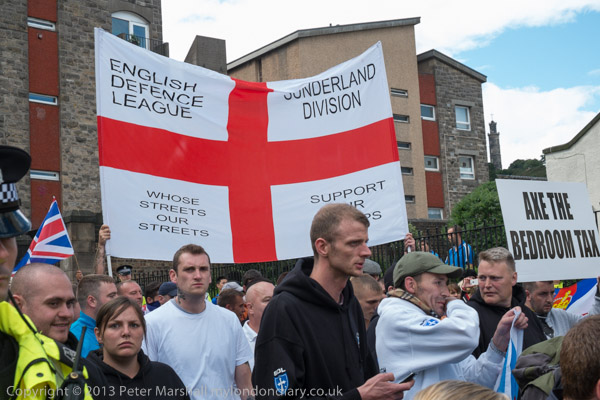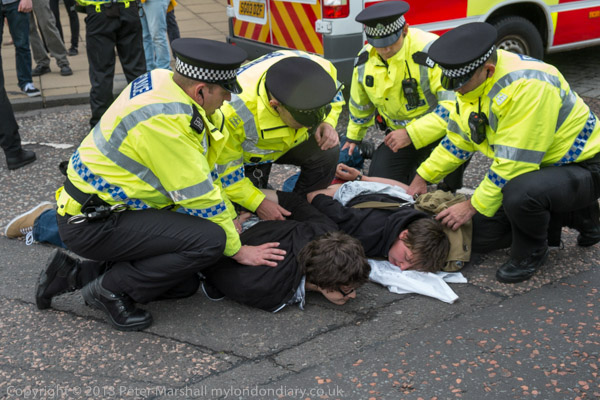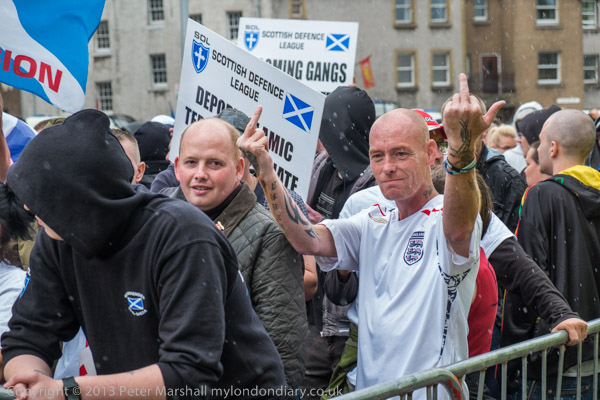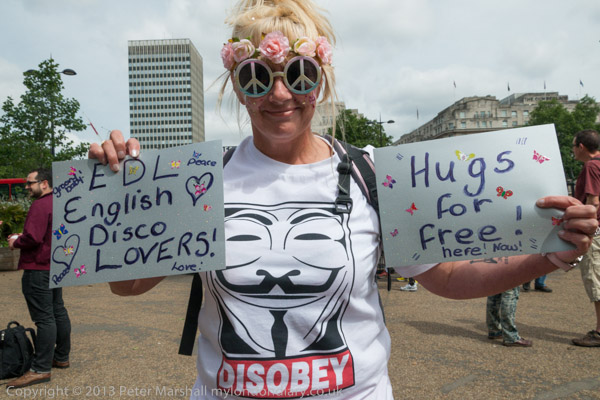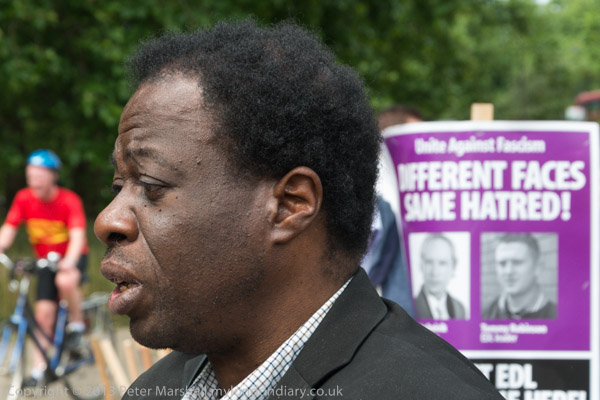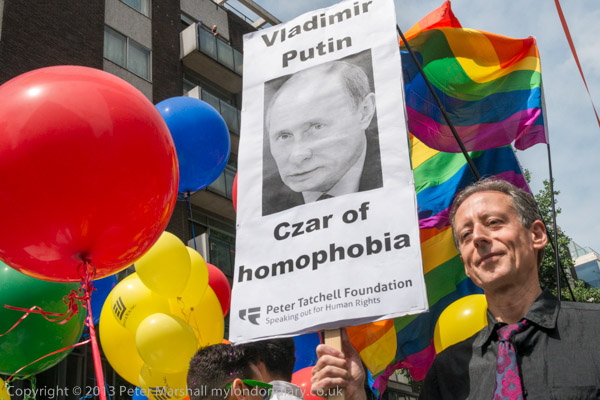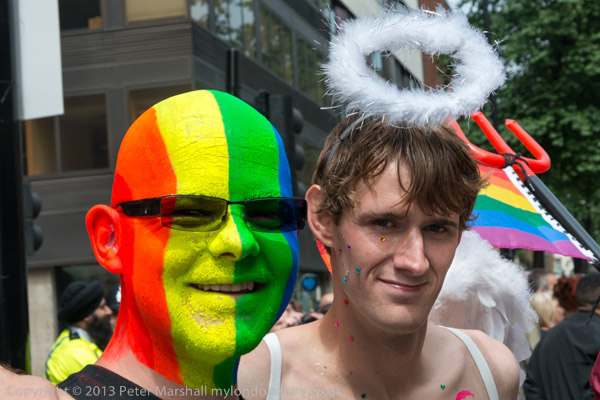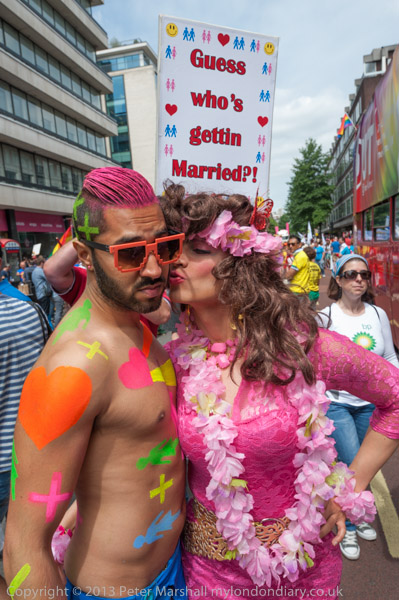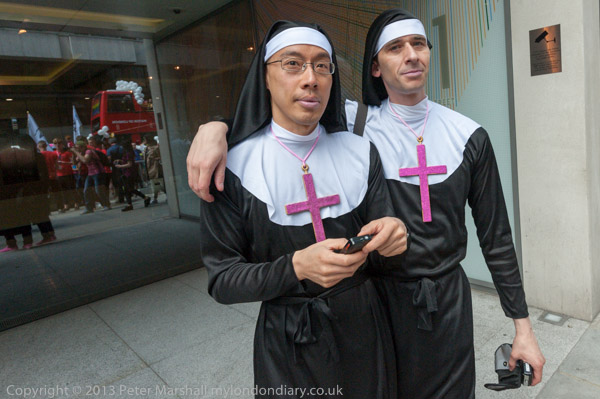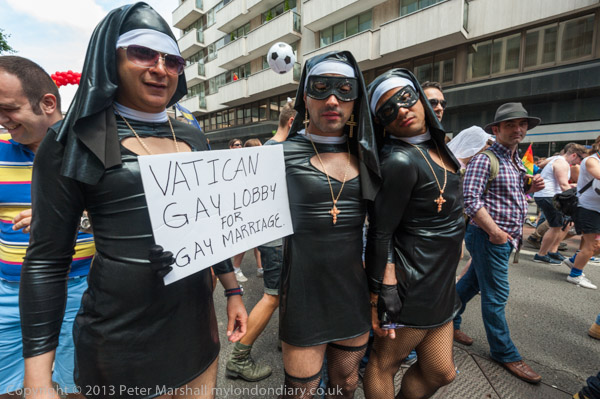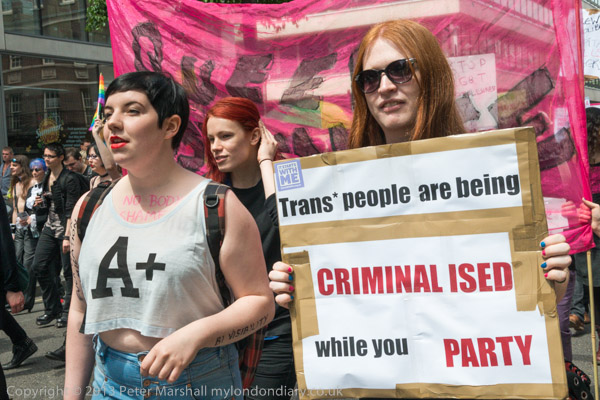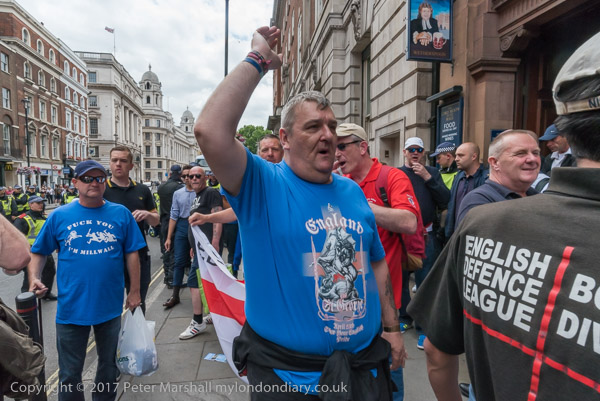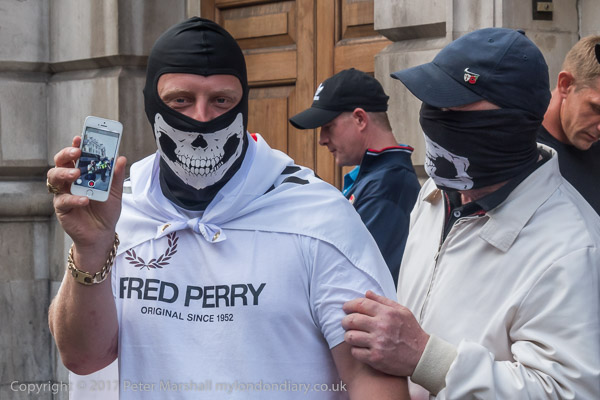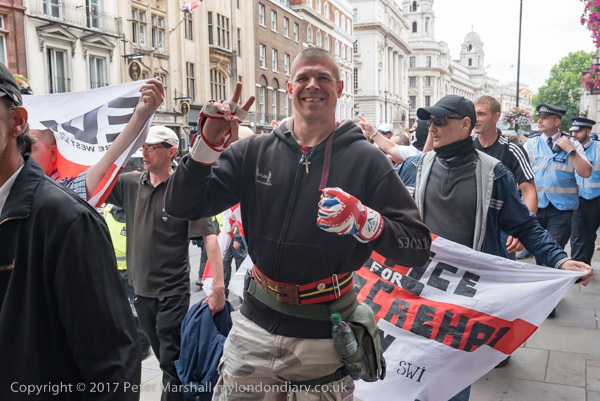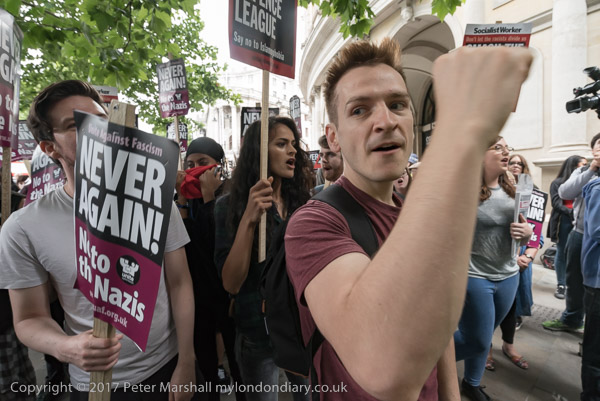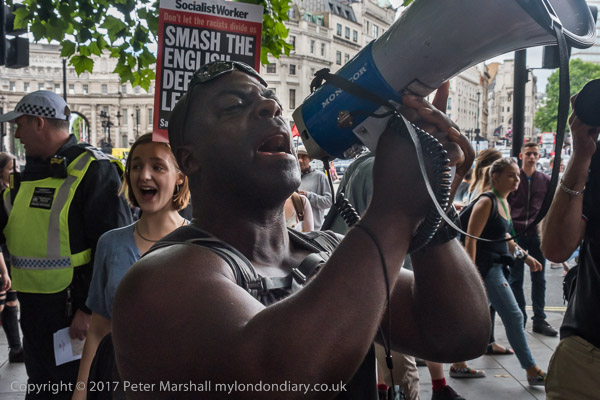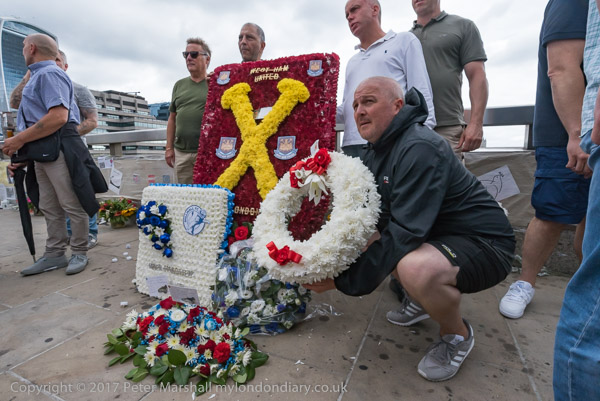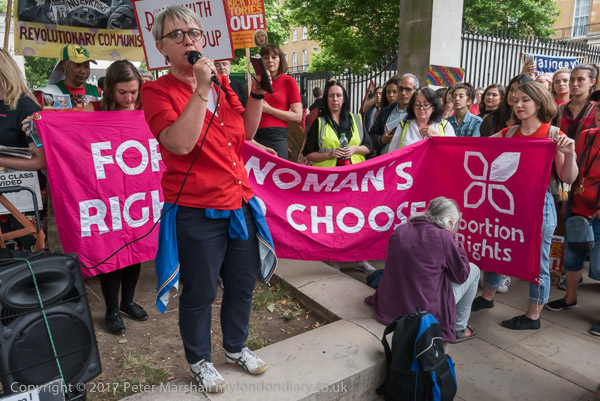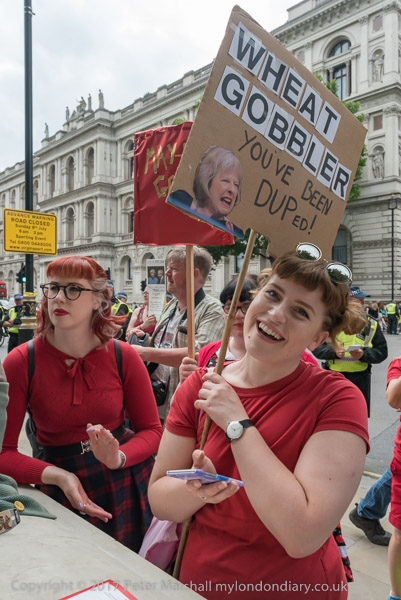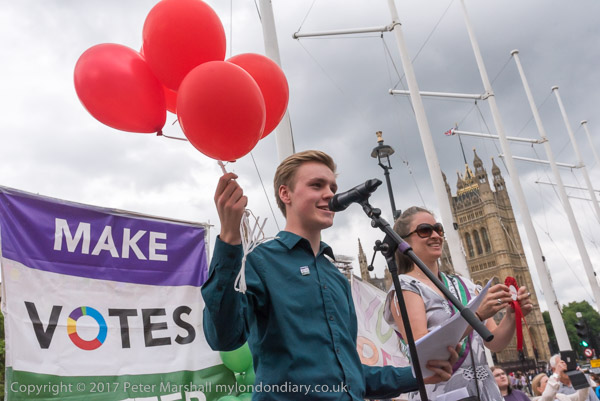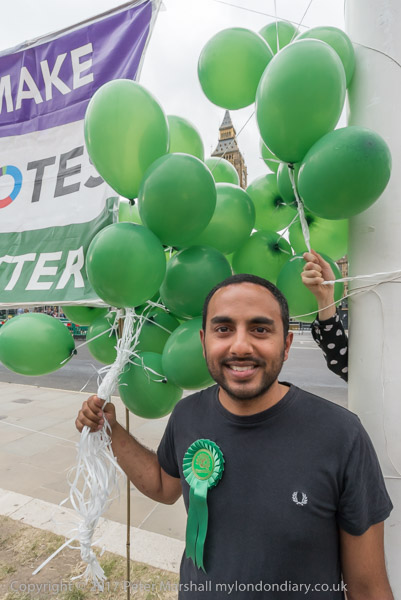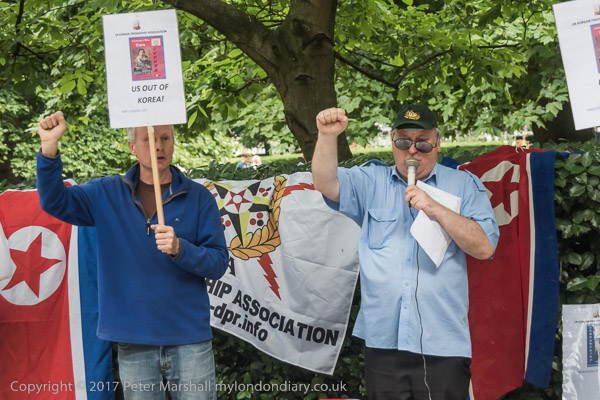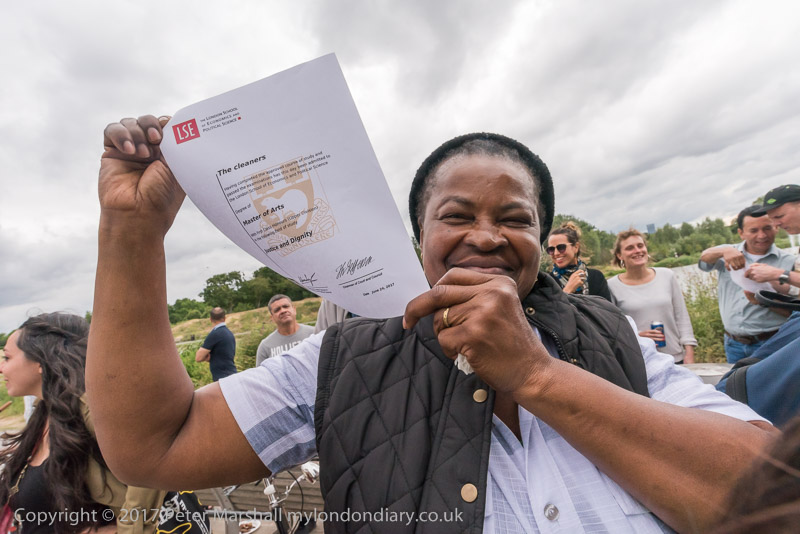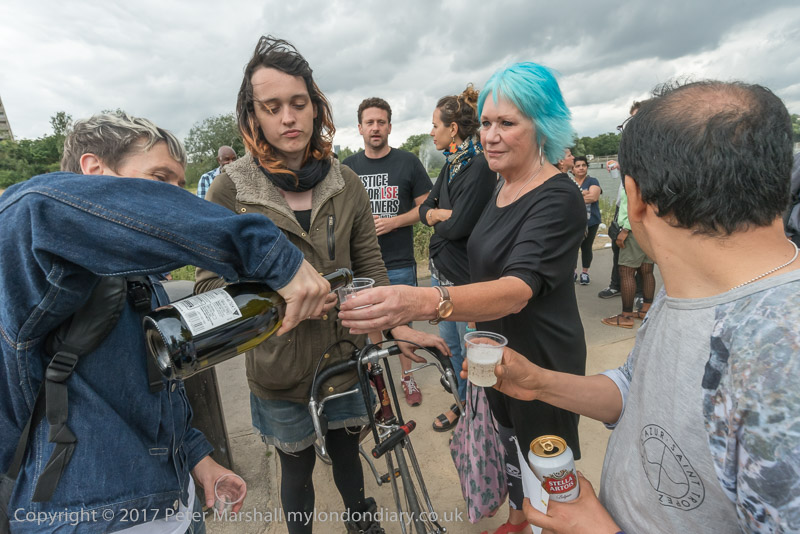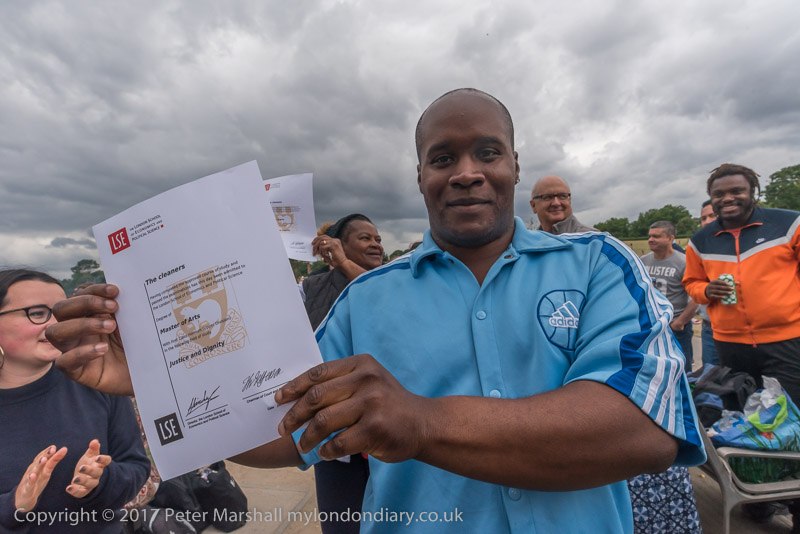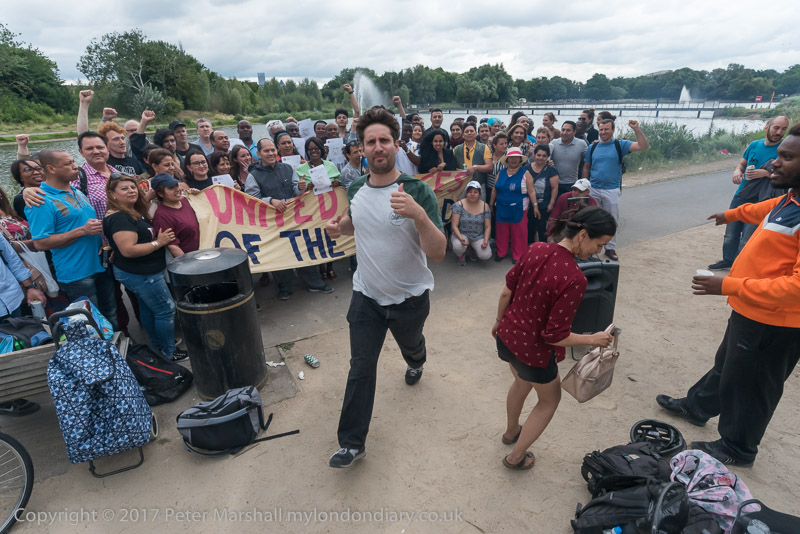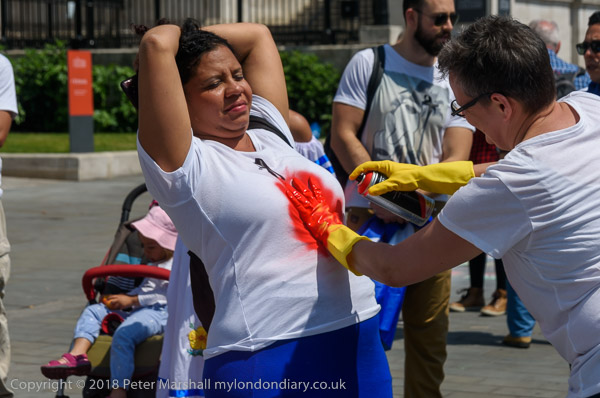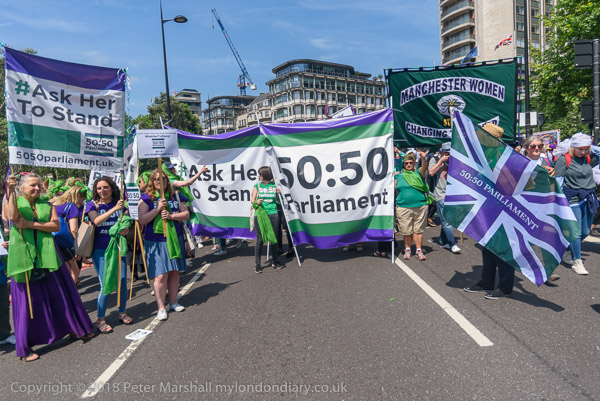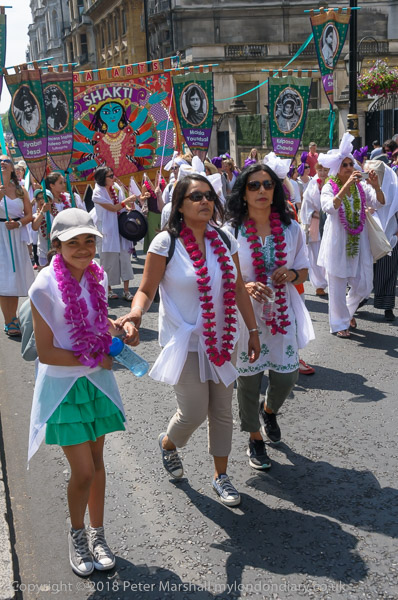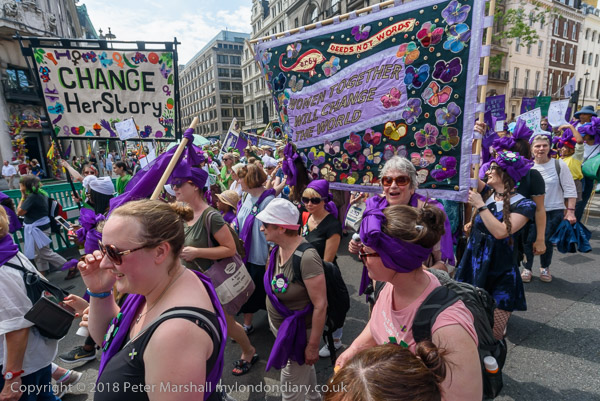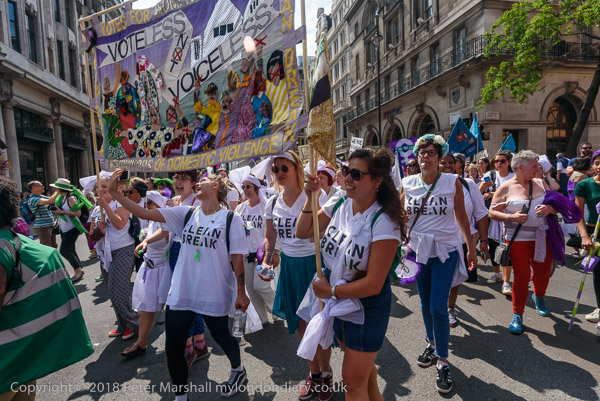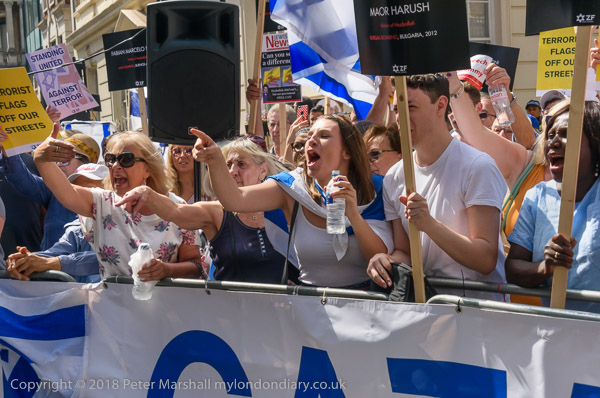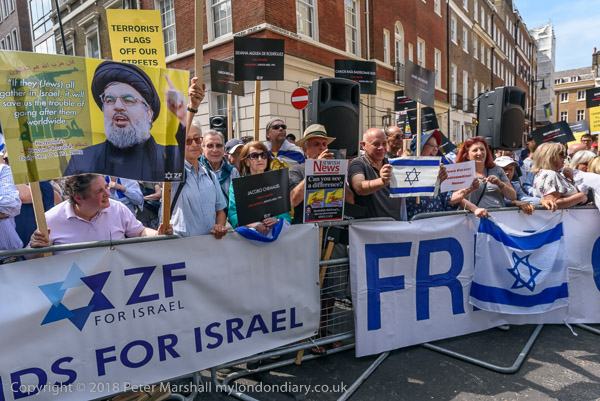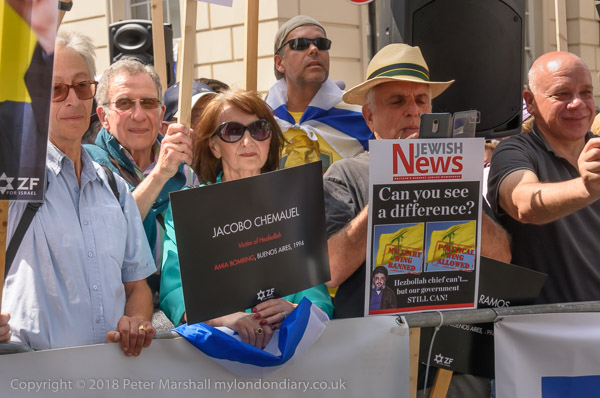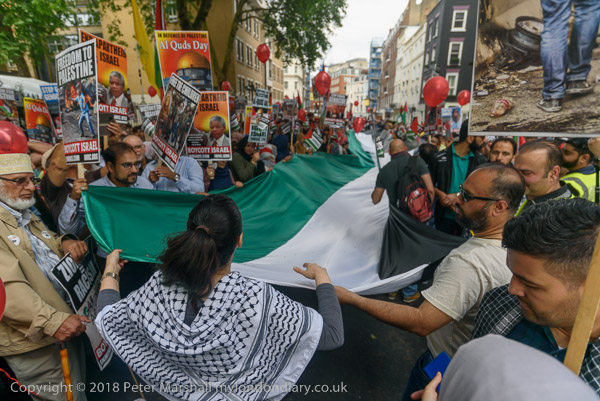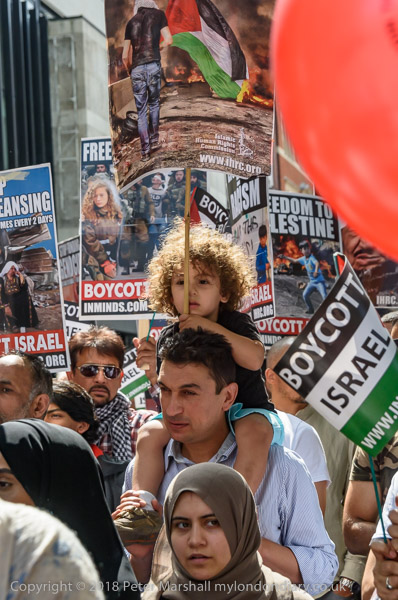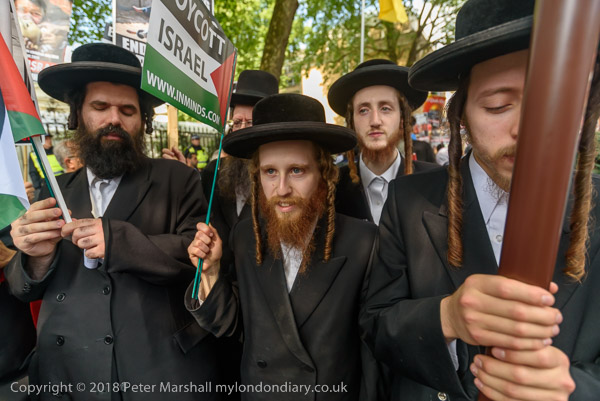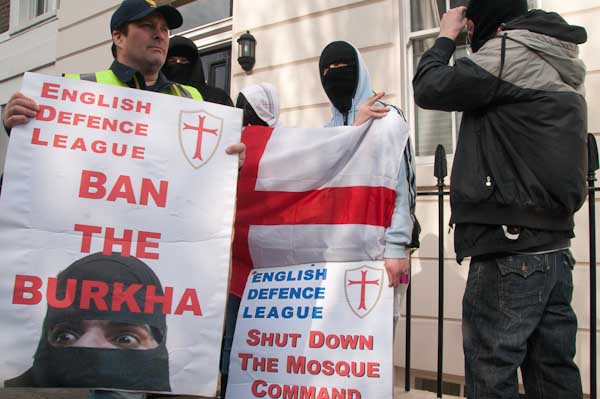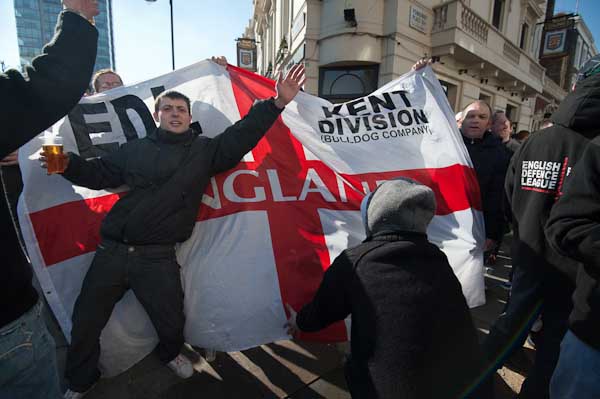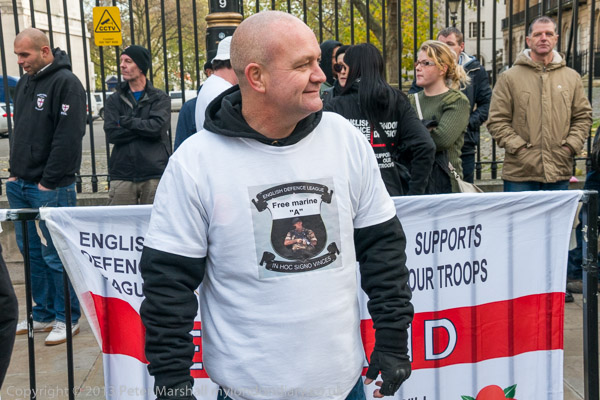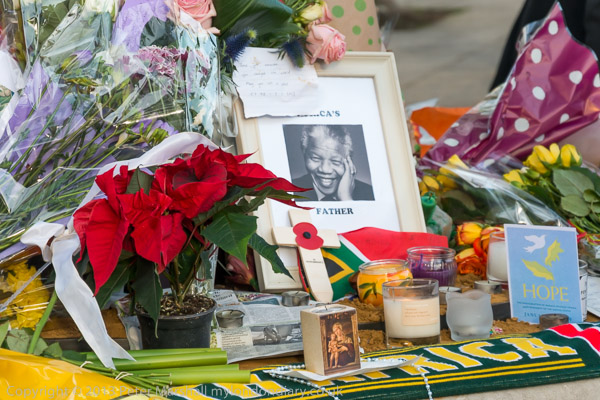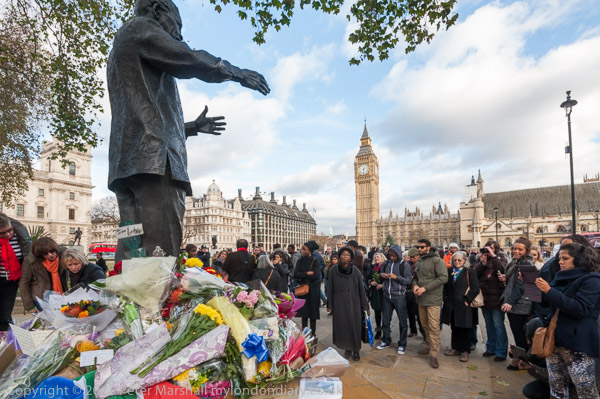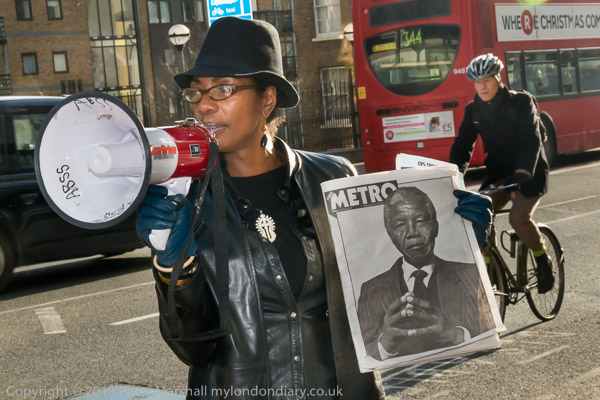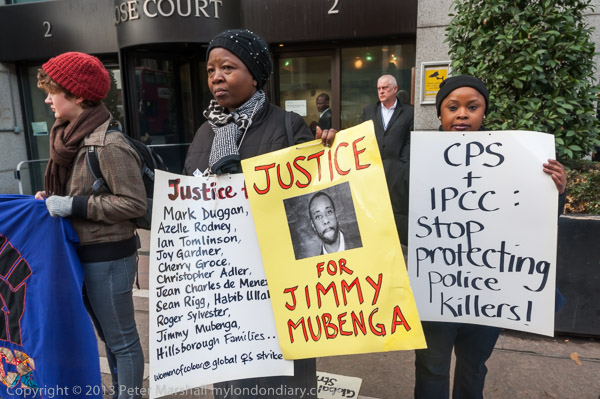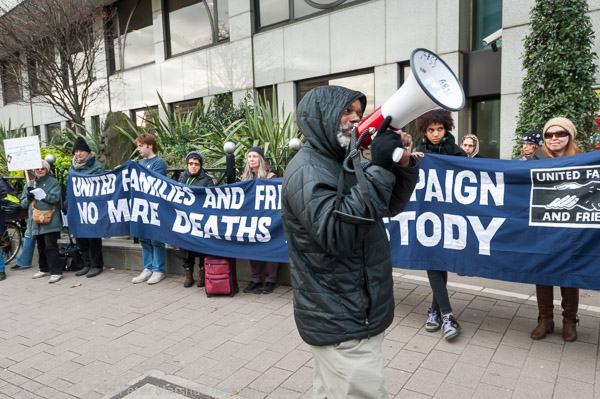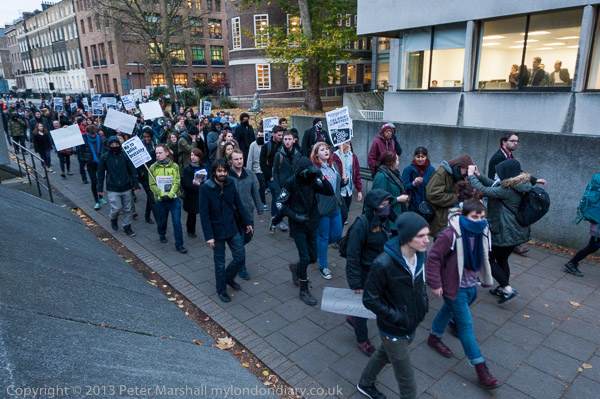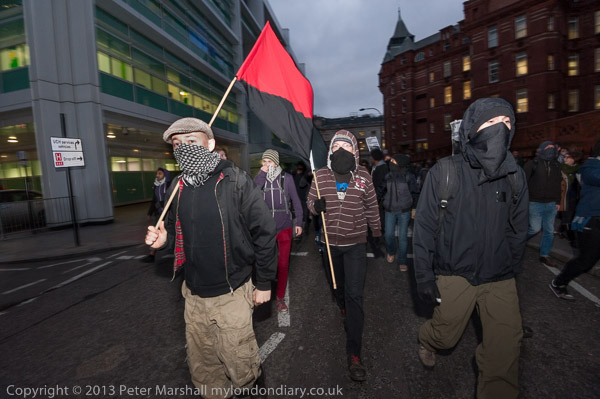Muslim Veils, Illegal Goods, Murders, Union Busting and London: Saturday 25th September 2010 was a day for several fairly small protests around London, involving me in quite a lot of travelling around. As well as photographing Muslim women protesting against a French ban on Islamic face veils, a protest and counter-protest at a shop selling products from an illegal Israeli settlement, families of murder victimes calling for tougher sentences and a protest against a company employing cleaners for their union-busting activities I also took quite a few pictures as I rode buses and walked around between these events.
Hizb ut-Tahrir Women Protest French Veil Ban
French Embassy, Knightsbridge
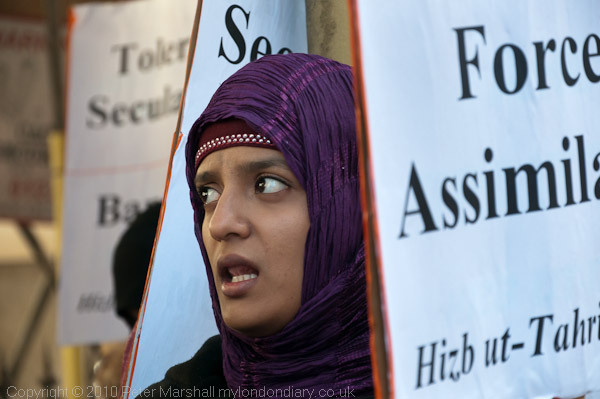
I’ve often commented on how women were normally sidelined – literally – at protests by the now banned Hizb ut-Tahrir Britain but at this protest outside the French Embassy they were very much at the front, with around 80 women, many with children, and only a handful of men – who did seem to be organising the event.
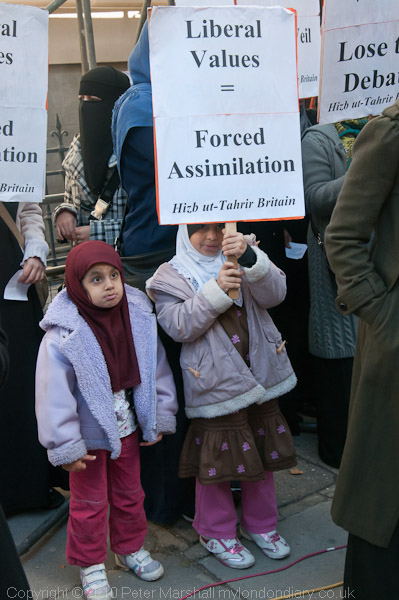
They were to protest against a law passed by the French Senate on September 14th to prohibit all full-face coverings in public places, clearly aimed at Muslim women who wear the niqab or burkha.
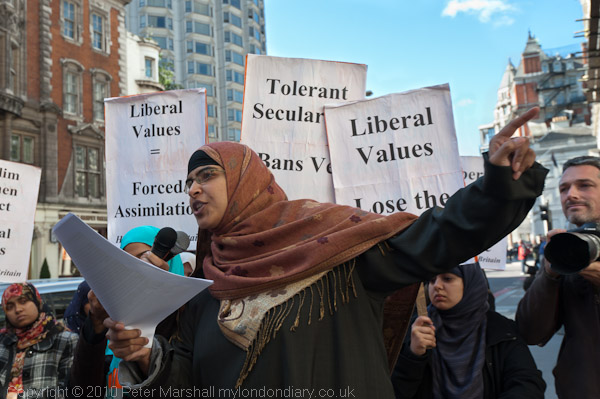
Such garments were then rarely worn in France, certainly outside of Paris and some Mediterranean coastal cities, and of France’s 2-3 million Muslim women the ban is thought likely to only effect around two thousand of them.
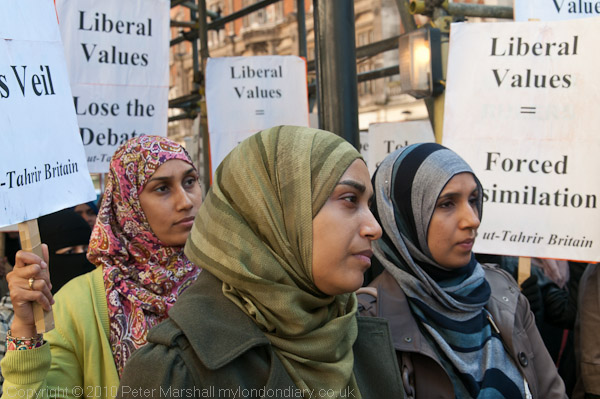
Very few of the women at the protest wore veil, most simply covering their hair. The protest in a wealthy area of London close to Harrods was passed by quite a few women who were veiled, but who all seemed to ignore the protest.
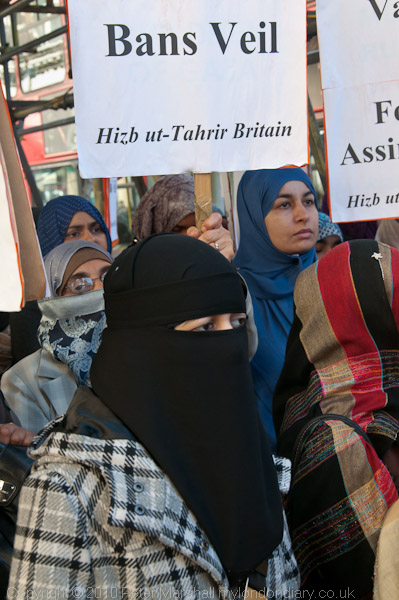
I wrote:’ Speakers at the event castigated the French government for taking a measure which they felt limited the freedom of women to make decisions on what they wear while at the same time ignoring issues that degrade and oppress women – such as domestic violence, and “the objectification and sexualisation of women’s bodies in pornography, lap-dancing clubs, advertising, and the entertainment industry, all permitted under the premise of freedom of expression and driven by the pursuit of profit in Western societies.”‘
More at Hizb ut-Tahrir Protest French Veil Ban.
Protest Against Illegal Israeli Goods
Ahava, Monmouth St, Covent Garden
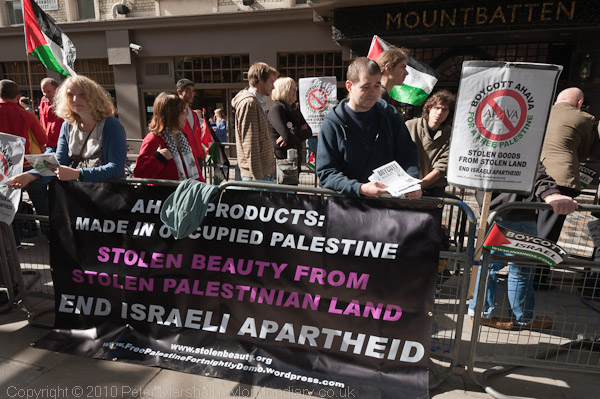
This was one of a series of fortnightly demonstrations outside the Covent Garden Ahava shop which sells products manufactured in an illegal Israel settlement on occupied Palestinian land. These protests were a part of an international ‘Stolen Beauty’ campaign organised by ‘Code Pink’, a women-initiated grass-roots peace and social justice movement which began when American women came together to oppose the invasion of Iraq.
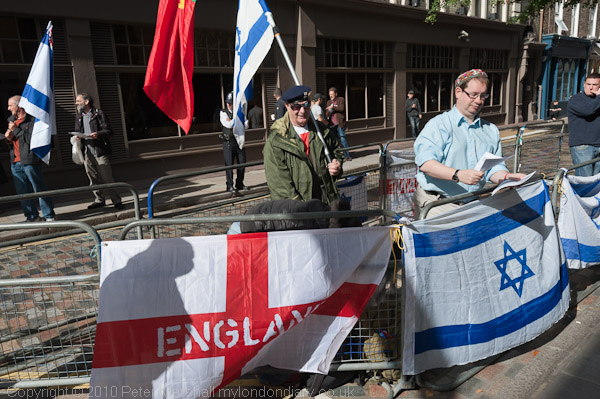
As usual there was a smaller counter-demonstration by a few EDL supporters and a handful of Zionists, handing out leaflets which described the call for a boycott as “bigoted, complicitly and politically antisemitic“.
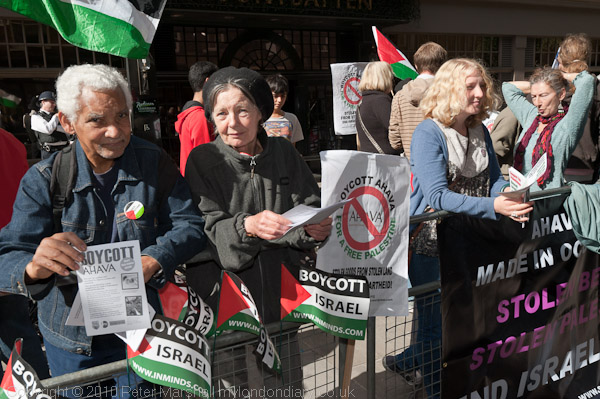
The protesters say Israel in in breach of international law and Ahava “has openly flouted tax requirements by exploiting the EU-Israel trade agreement and violates UK DEFRA guidelines in respect of proper labelling.” I read the leaflets they handed out and the web sites calling for the boycott and could find no evidence of anti-Semitism. Many calling for a boycott of Israeli goods are Jewish and I reflected that when I began taking photographs in London no Jewish shop would have opened on a Saturday.
More at Protest Against Illegal Israeli Goods.
Families of Murder Victims Call For Justice
Embankment
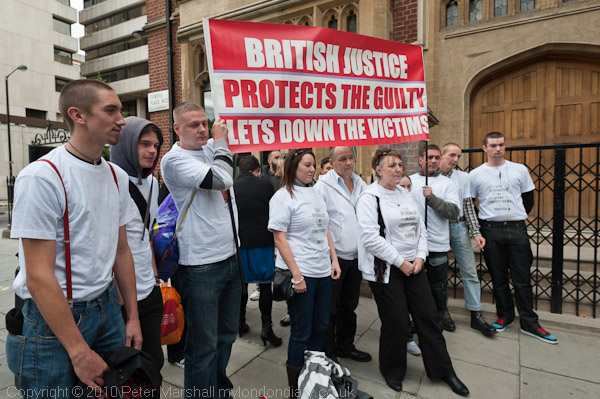
‘Families Fighting For Justice’, including many families of murder victims, marched through London on Saturday calling for tougher sentences for murder – with life sentences meaning life imprisonment.

The group was formed in Liverpool by Jean Taylor whose sister, son and daughter were all murder victims. She set up a petition which said “Life should mean life, for first degree murder, also tougher sentences for manslaughter” and in 2008 recruited families of other murder victims to join her and march with it to Downing Street.

You can read some of the horrendous stories on the groups web site, and some I was told at the protest were truly heartbreaking and showed why many ordinary people have lost faith in our justice system – and I highlight one of them on My London Diary.

But as I also commented “I don’t feel that the ‘Life 4 A Life’ campaign would actually do much if anything to solve the problem“. Murder is never a rational act where murderers weigh up how long a sentence they might get if caught and draconian sentences would have little or no deterrent effect. Things more likely to help include better social services and policing, but we really need “changes that bring back some of our community spirit and give people a greater engagement.” There really is such a thing as society despite Thatcher’s dismissal and we uirgently need more of it.
Much more at Families of Murder Victims Call For Justice.
Protest Over Initial Rentokil Union Busting
Old St
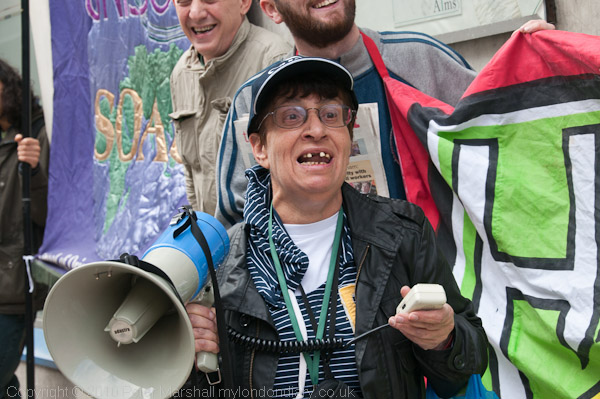
A short protest by around 20 trade unionists outside the Initial Rentokil offices in Brunswick Place near Old Street on Saturday afternoon marked the start of the campaign against the company for its intimidation and bullying of union members who choose to speak out about pay and employment practices and play an active role in the union.
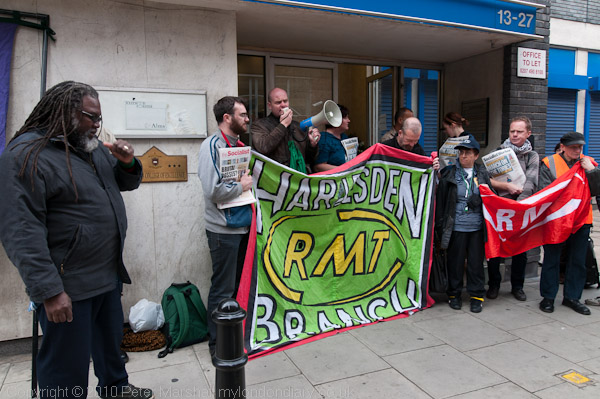
The cleaners employed by the company at the Eurostar terminals at St. Pancras International were RMT members and the dispute between the union and Initial has continued.
The unions alleged that Initial was deliberately employing workers with doubtful immigration status so they can pay minimum wages and provide sub-standard working conditions, often requiring them to work without proper safety equipment or precautions. They allege that workers who question their rights or attempt to organise have been reported to the immigration authorities who have then raided the workplace.
More at Protest over Initial Rentokil Union Busting.
Around London
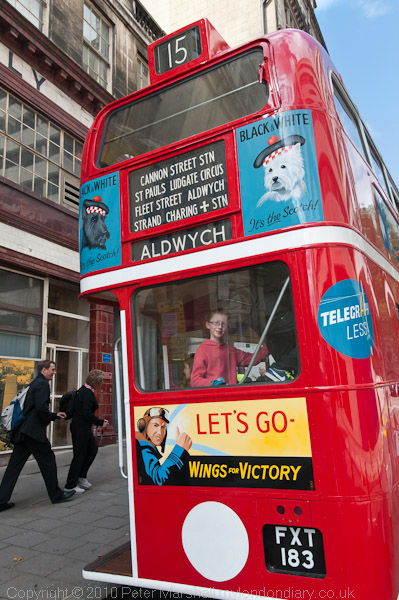
One bus I didn’t travel on but photographed outside the former Aldwych Piccadilly Line Station.
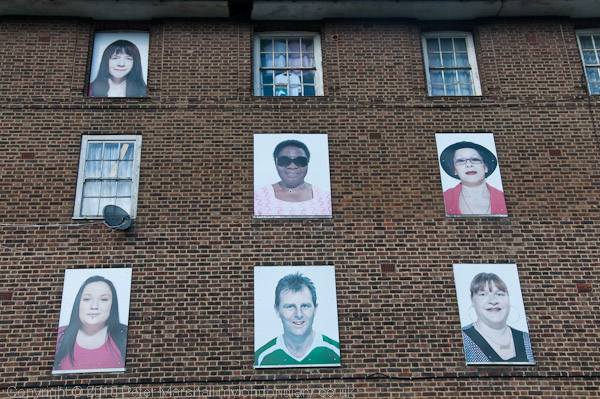
‘I am Here’, one of London’s largest art installations overlooking the Regent’s Canal at Haggerston with photographs of former residents on empty flats where people are moved out to redevelop the Haggerston estate – with the promise they will be moved back to new social housing on the estate

Missing letters on an advert beside the canal for Ron’s Shellfish on sale every Saturday at Hoxton Market create a puzzle for those walking by, though this and another picture on My London Diary concentrate on the images and miss out the centre of the sign.

Decoration on the Suleymaniye Mosque on Kingsland Road which mainly serves the British Turkish community.
More at Around London.
Flickr – Facebook – My London Diary – Hull Photos – Lea Valley – Paris
London’s Industrial Heritage – London Photos
All photographs on this page are copyright © Peter Marshall.
Contact me to buy prints or licence to reproduce.



